Teacher and students of class 5A3, Tan Phong Primary School ( Lai Chau city) apply information technology in teaching and learning.
I- PURPOSE AND REQUIREMENTS
1. Purpose
- Widely deploy the Movement to popularize basic knowledge about digital transformation and digital skills to people with a revolutionary, all-people, comprehensive spirit, leaving no one behind in the digital transformation process; all people are equipped with the necessary digital knowledge and skills to apply in daily life to grasp, utilize, exploit, and enjoy the achievements of science and technology, innovation and digital transformation.
- Promote the strength of the entire political system in propagating, raising awareness and action of Party committees, authorities, socio-political organizations at all levels, and people of all walks of life about the role and significance of digital transformation, the dissemination of digital skills, arousing the self-motivation of each person in learning, practicing digital skills and fully participating in the digital transformation process of the province and the country.
- Enhance the role and responsibility of all levels, sectors, agencies, units, organizations, especially the heads of local Party committees, authorities, and organizations in leading and directing the implementation of the Movement, performing tasks and solutions to popularize basic knowledge about digital transformation and digital skills for people; at the same time, accelerate the digital transformation process of agencies, units, and localities.
2. Requirements
- The movement is deployed comprehensively and widely to villages, hamlets, residential groups, and residential communities to create a nationwide movement to compete in learning and practicing digital skills, actively participating in the digital transformation process. Cadres and party members are pioneers and exemplary in implementing the Movement, contributing to spreading the spirit of self-study, self-improvement of digital knowledge and skills, turning the process of learning, practicing, improving and applying digital knowledge into the personal needs of each person.
- Implement systematically, scientifically, flexibly and creatively, closely following the directives of the central ministries and branches in connection with the actual situation of the province. Promote the role of political - social organizations, professional social organizations, agencies, organizations, enterprises, educational institutions, and scientific and technological organizations in the province to create a diverse and rich digital learning ecosystem. Strongly apply digital technology, artificial intelligence and online learning platforms, ensuring a flexible approach suitable for all subjects, especially vulnerable groups, people in remote areas, and ethnic minority areas.
- Deploy the Movement quickly, widely, comprehensively, systematically, cohesively, and complete it early. Integrate digital technology into all aspects of life, helping people connect, interact, and develop digital skills to use digital platforms and services, forming habits and culture in the digital environment.
- Regularly check, evaluate, and ensure real effectiveness. The results of the Movement must be measured by fundamental changes in people's digital capacity, promoting the digital economy, building digital government, digital society, and moving towards the goal of Vietnam soon becoming a digital nation.
- Ensure data security and information safety throughout the implementation of the Movement.
- Studying, grasping and implementing the Movement is associated with implementing the Party's guidelines, policies and laws of the State and documents of the Provincial Party Committee and Provincial People's Committee on digital transformation in Lai Chau province.
II- MOVEMENT CONTENT
1. Propaganda, dissemination, and creating strong changes in the awareness and actions of Party committees, Party organizations, authorities, unions, cadres, Party members, and people about digital transformation and the work of popularizing digital skills for people in the national digital transformation process.
2. Develop policies, remove bottlenecks and institutional barriers to support and accelerate the digital transformation process, and popularize digital skills for people with the motto "no one is left behind" and "people and businesses are the center, goal and driving force of digital transformation".
3. Comprehensively and synchronously deploy solutions, focus resources, mobilize participation and coordination of domestic and foreign organizations and individuals; update and raise awareness of digital transformation and digital skills for officials, civil servants, public employees and workers in the public sector; popularize digital skills for students, workers in enterprises and people in studying, researching, using online public services and other essential services. 4. Launch a movement to compete in self-study on digital transformation, practice and develop digital skills to meet the digital transformation requirements of agencies, units and enterprises; effectively exploit digital services, platforms, digital technologies, especially artificial intelligence in work and life; build digital units, digital communities, families and digital citizens.
5. Link the Movement with the implementation of the Project "Raising awareness, popularizing skills and developing human resources for national digital transformation by 2025, with a vision to 2030" (issued under Decision No. 146/QD-TTg, dated January 28, 2022 of the Prime Minister); Project on developing digital capacity in Lai Chau province by 2025 (issued under Decision No. 234/QD-UBND, dated February 5, 2025 of the People's Committee of Lai Chau province) with the movements being implemented, especially the emulation movement "The whole country competes to build a learning society, promote lifelong learning in the period 2023 - 2030" (issued under Decision No. 1315/QD-TTg, dated November 9, 2023 of the Prime Minister).
III - SPECIFIC TARGETS
1. Year 2025
a) Over 80% of cadres, civil servants, public employees and workers in the public sector have understanding of digital transformation, digital knowledge and skills, and can use digital platforms and services to serve their work.
b) 100% of high school and university students are equipped with digital knowledge and skills to serve their study, research and creation, and have safety skills in learning and social interaction in the digital environment.
c) Over 80% of adults have basic knowledge of digital transformation, have digital skills, can use smart devices to exploit information, use essential digital platforms and services, and know how to protect themselves in the digital environment.
d) Strive for over 170,000 adults to be confirmed to have universal knowledge of digital transformation and digital skills on the VNeID platform.
d) Over 80% of workers in enterprises, cooperatives, and cooperative unions have basic knowledge of digital technology, digital skills, and can use smart devices to serve production and business, and improve labor productivity.
2. 2026
a) 100% of cadres, civil servants, public employees and workers in the public sector have understanding of digital transformation, digital knowledge and skills, and make good use of digital platforms and services to serve their work.
b) 100% of primary school students are equipped with digital knowledge and skills to serve their learning, research and creativity, recognize risks, and have skills to ensure safety in the digital environment.
c) 100% of adults have basic knowledge of digital transformation, have digital skills, and are good at using smart devices to exploit information, use essential digital platforms and services, and participate in interactions and safety in the digital environment.
d) Strive for over 250,000 adults to be confirmed to have universal knowledge of digital transformation and digital skills on the VNeID platform.
d) 100% of employees in enterprises, cooperatives, and cooperative unions have knowledge of digital technology, digital skills, and good use of smart devices to serve production and business, and improve labor productivity.
IV- MAIN TASKS AND SOLUTIONS 1. Communication and propaganda
1.1. Conduct extensive communication on mass media, the province's electronic information portal, electronic information pages of all levels and sectors, Lai Chau Newspaper, Provincial Radio and Television Station, grassroots radio station system, and social networking platforms about the Movement.
1.2. Mobilize influential people in the community to participate in communication and spread the Movement. Disseminate to each household and citizen the purpose and meaning of the Movement. Propaganda about the meaning and importance of mastering digital technology and digital skills in the national digital transformation process.
1.3. Integrate and implement the "National Digital Learning Festival" into the Plan for organizing activities in response to the National Digital Transformation Day (October 10) every year. Combine online and in-person activities in localities such as organizing seminars, talks and conferences; experience and guide the use of digital platforms, services, and digital classes for the community.
1.4. Provide information about the Movement on the Provincial Electronic Information Portal and the Provincial Science and Technology Information Page to a wide range of people through various means for convenient access to information.
2. Strictly implement the regulations and instructions of the Central Committee on the Movement.
2.1. Achieve the goal of universalizing digital skills for four target groups: Officials, civil servants, public employees, and workers in state agencies; students; workers in enterprises; and people according to the Central Government's instructions.
2.2. Launching emulation campaigns to achieve achievements in the "Digital Education for All" Movement in the province. Specifying the Central's guidelines on emulation and rewarding collectives and individuals with many contributions, dedication, and outstanding achievements in implementing the Movement in line with the province's reality.
3. Implementing a digital skills dissemination program
3.1. Based on the Central regulations, develop documents specifying the universalization program in accordance with the digital skills framework of each universalization target group, focusing on core content, enhancing practice and application in work and life.
3.2. Deploy documents and lectures as prescribed for both teachers and learners, suitable for posting on online platforms, meeting the needs of a large number of learners.
4. Deploy platforms
4.1. Receive, exploit and guide cadres, party members and people to effectively use the national mass open online learning platform (MOOCs) "Digital popular education" to train, foster and popularize knowledge about digital transformation and digital skills for all subjects in the province.
4.2. Receive and effectively exploit the integrated platform with VNeID to propagate to cadres, party members and people in the province about digital transformation, identification, authentication of learners, serving training, assessment, confirmation of universalization of digital skills and digital capacity in an automatic direction.
4.3. Organize, implement and maintain digital services and platforms in many fields and professions for cadres, party members and people to practice and use immediately during the process of training digital skills. Thereby, people see the benefits and actively participate in the digital transformation process.
4.4. Guide cadres, party members and people to effectively exploit and use virtual assistants to support learning basic knowledge about digital transformation and developing digital skills based on natural language processing technology. The system uses artificial intelligence to personalize learning content, ensuring an experience appropriate to the level and needs of each user.
5. Popularize knowledge about digital transformation for each target group
5.1. Updating, improving knowledge, and popularizing digital skills for officials, civil servants, public employees, and workers in state agencies.
a) Organize thematic activities "Pioneering Party members in learning digital skills" in grassroots party organizations in the province, creating strong changes in awareness and actions of party members in learning, raising awareness, developing digital skills, promoting digital transformation at agencies and units.
b) Organize training courses to update and improve digital transformation qualifications and digital skills for officials, civil servants, public employees and workers, in accordance with the digital transformation process of the agency or unit.
c) Integrate and include digital transformation and digital skills development content into state management training programs as prescribed.
5.2. Digital skills education for students
a) Integrate digital skills education for students in general education, vocational education, and college education programs. Special attention is paid to skills in using artificial intelligence (AI) in education and training.
b) Organize the implementation of the "Learning from doing" program, which links universities, colleges, vocational training institutions and training establishments with businesses to build human resource training programs to serve digital transformation according to actual requirements and orders of businesses.
c) Accelerate the digital transformation process in the education and training sector, develop new educational models based on digital technology and artificial intelligence, create an environment for students to access, develop digital skills and benefit from the digital transformation achievements of the industry.
d) Promote the role of students in volunteer activities to participate in popularizing digital skills for people, first of all family members and people in difficult and disadvantaged circumstances.
5.3. Universalizing digital skills for workers in enterprises, cooperatives, and cooperative unions
a) Organize digital skills training courses so that workers and employees at enterprises, cooperatives, and cooperative unions can grasp the digital transformation trends of the unit and apply new technologies to improve productivity and labor efficiency.
b) Organize training courses and instruct workers on how to use the equipment.
Tools and software for production management, automated machine operation, product quality monitoring and testing, knowledge and skills in e-commerce.
5.4. Universalizing digital skills for people
a) Organize weekly community learning sessions for people in the commune and ward. Focus on practical, immediately applicable content, linked to the implementation of the Government's projects on national digital transformation. Encourage people to participate in learning digital skills on mass open online learning platforms.
b) Community digital technology groups, youth unions, digital technology enterprises, women's associations and professional social organizations send members with technology knowledge to guide people, especially the elderly and manual workers, in using digital platforms and services.
c) Organize "Digital Literacy" classes for the elderly on Internet usage, online public services, digital payments, especially digital safety and online healthcare.
d) Organize specialized technology and digital skills classes for people
disabled with a curriculum appropriate to the abilities and needs of each group. Maintain and upgrade websites supporting disabled people, ensuring a friendly interface, integrating tools to support disabled people in accessing text, audio, translation, etc. according to international standards.
d) Support the poor, ethnic minorities, and rural areas to access and use digital services and platforms. Synchronously implement policies to ensure that the poor, ethnic minorities, and rural areas have the ability to access and use digital technology, narrowing the digital gap with urban areas.
6. Organize and implement models and movements to spread digital skills to the community according to regulations.
6.1. Organize the implementation of the "Digital Ambassador" network model to popularize digital skills for the community through the Mentor - Mentee model. Each "mentor" guides digital skills for at least 5 "mentees". Each ward and commune arranges at least one staff member to support and guide people when they come to do administrative procedures but do not have enough skills to operate on the Online Public Service Portal.
6.2. Organizing the implementation of the "Digital Family" Movement: Each household has at least one member participating in learning, understanding digital transformation, digital skills, using digital platforms and services and providing guidance to family members.
6.3. Organizing the implementation of the "Digital Market - Digital Rural Area" model: Training small traders, farmers and people in rural areas through the 4T learning model (Small traders - E-commerce - Cashless payment - Digital savings), helping learners master skills, use technology and digital platforms in business.
6.4. Implementing the Model "Each citizen - One digital identity": Ensuring that 100% of citizens from 16 years old have a digital identity, supporting people to install and use the VNeID application and digital bank accounts.
6.5. Organizing the implementation of the "Community Digital Technology Team" model: Promoting the role and improving the operational efficiency of community digital technology teams in the province that have been established in implementing the "Digital Literacy Movement" with the motto "going to every alley, knocking on every door, guiding every person", especially in rural areas, places with difficult conditions, ethnic minorities, ensuring that all people are educated in basic digital transformation skills.
6.6. Launching the Youth Campaign to join hands to popularize digital skills: Youth Unions from the provincial to grassroots levels regularly carry out campaigns on specific topics or integrate them into the activities of the Community Digital Technology Group and the Digital Transformation Youth Group. Youth volunteers organize classes and groups to guide people on how to install and use software, applications, products and digital services.
V- IMPLEMENTATION COSTS
The funding for implementing the Movement is integrated into programs, projects, and plans approved by competent authorities on digital transformation; from the state budget according to the provisions of law on budget decentralization; mobilized from funding sources, contributions of organizations, individuals, communities, and other legal funding sources.
VI- IMPLEMENTATION ORGANIZATION
1. Responsibilities of the Provincial Steering Committee on science, technology development, innovation and digital transformation
- Lead and direct unified organizations, agencies and units in the province to deploy the Movement.
- Timely propose and advise the Provincial Party Standing Committee on policies and solutions to promote the Movement when there are difficulties or problems; report progress periodically or suddenly.
- Develop programs and conduct annual or ad hoc inspections and supervisions at departments, branches, sectors and localities; direct timely handling of errors and delays.
- Organize annual reviews and summaries, report to the Provincial Party Standing Committee and the Central Steering Committee when requested.
2. Provincial Party Committee's Propaganda and Mass Mobilization Department
- Preside over and coordinate with the Provincial Party Committee Office, relevant agencies and units to deploy, regularly monitor, urge and inspect the implementation of the Movement; periodically report quarterly and suddenly to the Provincial Steering Committee on science and technology development, innovation and digital transformation and the standing agency of the Central Steering Committee when requested.
- Advise the Provincial Steering Committee on science, technology development, innovation and digital transformation to establish a Working Group to implement the Movement. Build a coordination mechanism between agencies, organizations and enterprises to ensure the implementation of the Movement is in line with the guiding viewpoint, achieving the set requirements, goals and targets.
- Preside and coordinate with relevant units to direct the implementation of tasks and solutions: Clause 1.1, Section 1, Part IV; Point a, Clause 5.1, Section 5, Part IV.
3. Provincial People's Committee Party Committee
Direct the Provincial People's Committee to develop a Plan and implement the Plan to respond to the Movement in the province, focusing on directing departments and branches to carry out the following main tasks and solutions:
- The Science and Technology sector presides over and coordinates with relevant agencies and units to carry out the following tasks and solutions: 1.3, Section 1, Part IV; 2.1, Section 2, Part IV; 4.1, 4.4 Section 4, Part IV; 6.1, Section 4, Part IV. Presides over and coordinates with relevant agencies to organize and implement the Movement for groups of cadres, civil servants, public employees, and workers in the public sector. Directs telecommunications and digital technology enterprises to ensure infrastructure, transmission lines, and Internet connections to carry out the Movement.
- The education and training sector presides over and coordinates with relevant agencies and units to carry out the following tasks and solutions: 3.1, 3.2, Section 3, Part IV; Section 5.2, Part IV. Directs general education and vocational education institutions to contribute in terms of facilities, digital infrastructure, and digital human resources to support the implementation of the Movement.
- The Home Affairs sector presides over and coordinates with relevant agencies and units to carry out the following tasks and solutions: 2.2, Section 2, Part IV; c, 5.1, Section 5, Part IV. Coordinates with the Science and Technology sector to organize and implement the Movement for groups of cadres, civil servants, public employees, and workers in the public sector. - The Finance sector presides over and coordinates with relevant agencies and units to advise on budget allocation to carry out the tasks and solutions of the Plan in accordance with the budget balance capacity.
4. Provincial Party Committee Office
Coordinate with the Provincial Party Committee's Propaganda and Mass Mobilization Department and relevant agencies and units to deploy, monitor, urge and inspect the implementation of the Movement.
5. Provincial Police Party Committee
- Coordinate with the Provincial Party Committee's Propaganda and Mass Mobilization Department, the Provincial Party Committee Office, relevant agencies and units to deploy, monitor, urge and inspect the implementation of the Movement.
- Preside and coordinate with relevant agencies to implement tasks and solutions: 4.2, section 4 and 6.4, section 6, part IV.
- Ensure information security and safety to implement the Movement.
- Integrate the implementation of the Movement into the implementation plan of projects and programs related to digital transformation chaired by the Provincial Police.
- Develop and implement a plan to respond to the Movement throughout the police industry.
6. Provincial Party agencies
- Develop and implement a plan to respond to the Movement throughout the industry.
- Preside and coordinate with relevant agencies to deploy relevant tasks and solutions in Part IV.
- Mobilize the participation of social organizations, businesses and individuals in supporting funding and facilities to implement the Movement.
- Integrate the implementation of the Movement into the implementation plan of projects and programs related to digital transformation chaired by the agency.
7. Fatherland Front Committee and socio-political organizations, mass organizations of the province
- Develop and implement the Movement Response Plan. Take the lead in implementing tasks and solutions to mobilize resources, raise awareness, and motivate members and the masses to participate in the Movement; monitor and provide feedback on the Movement's implementation process.
- Integrate the implementation of the Movement into the deployment of programs and projects; movements and campaigns chaired and launched by the Fatherland Front and socio-political organizations of the province, especially the movement "The whole country competes to build a learning society, promote lifelong learning in the period 2023 - 2030".
8. District Party Committees, City Party Committees, and Party Committees directly under the Provincial Party Committee
- Direct the development and implementation of plans to deploy the Movement in localities and units in accordance with actual conditions. Encourage localities to deploy creative and highly effective models and methods.
- Lead and direct the implementation of tasks and solutions: Sections 1, 2, 3, 4, 5, Part IV and related tasks and solutions; take full responsibility for the results of the Movement implementation in the locality.
- Mobilize the participation of social organizations, businesses and individuals in supporting funding and facilities to implement the Movement.
- Integrate the implementation of the Movement into local and unit digital transformation plans, projects and programs.
9. Information technology associations and digital technology businesses
- Support digital infrastructure and human and financial resources; deploy programs and incentive packages for using digital products and services for people. Participate in developing a variety of digital platforms to serve the government and people in the national digital transformation process.
- Develop courses, directly organize "Digital Literacy" classes for target groups that match the strengths of the association, union, and digital technology enterprise. Mobilize personnel to join the team of teachers and volunteers to implement the Movement.
10. Information and reporting regime
Party committees, party organizations, the Provincial People's Committee, departments, branches, sectors, the Fatherland Front, socio-political organizations, and mass organizations of the province periodically report on the implementation results of the Movement's implementation plan every quarter, every 6 months, and every year to the Standing Committee of the Provincial Party Committee (through the Provincial Party Committee's Propaganda and Mass Mobilization Committee); the Provincial Party Committee's Propaganda and Mass Mobilization Committee synthesizes and reports to the Standing Committee of the Provincial Party Committee, the Provincial Steering Committee on science and technology development, innovation and digital transformation, and the Central Government when requested.
Source: https://baolaichau.vn/giao-duc/ke-hoach-trien-khai-phong-trao-binh-dan-hoc-vu-so-tren-dia-ban-tinh-lai-chau-610787


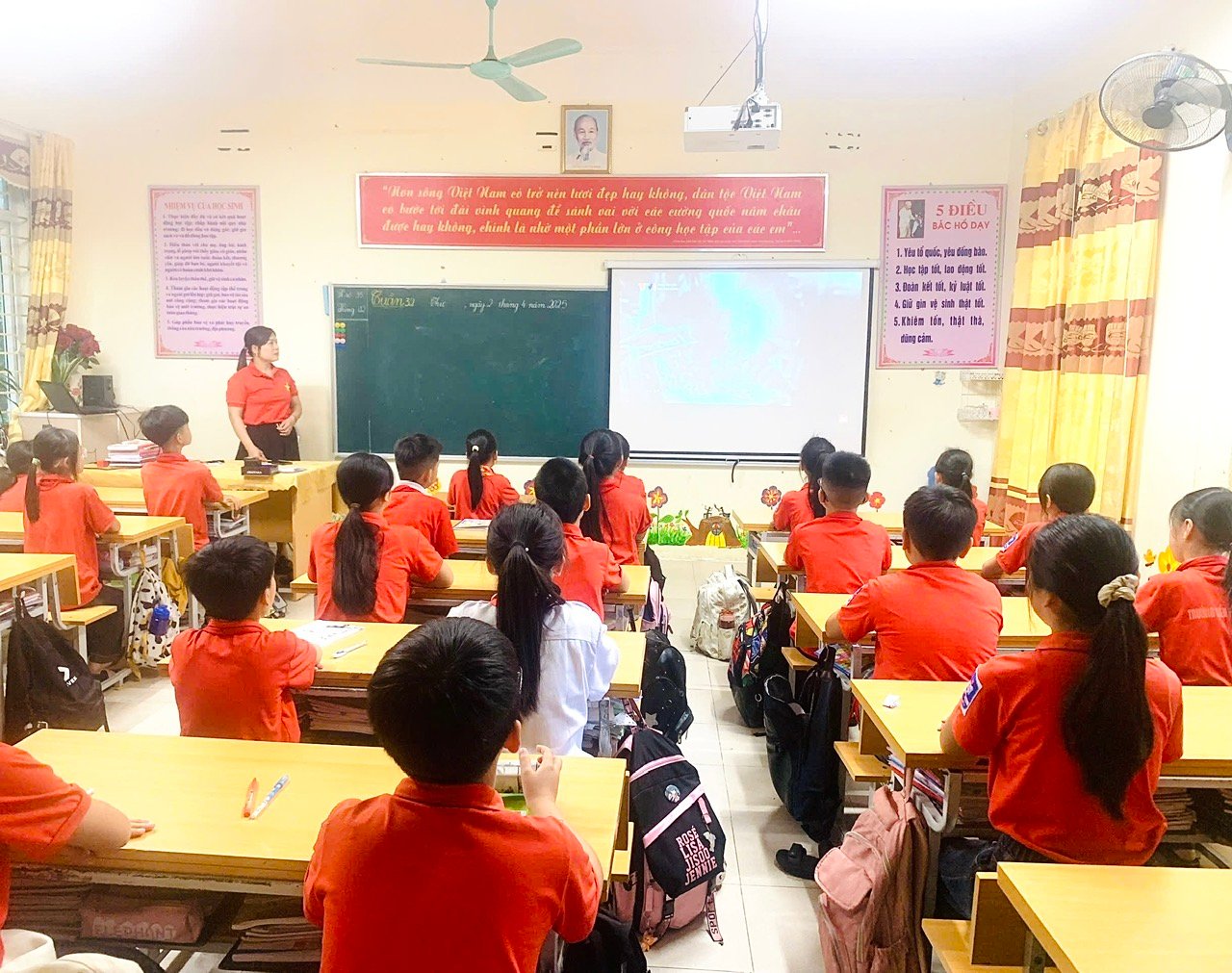


![[Photo] Government holds a special meeting on 8 decrees related to the International Financial Center in Vietnam](https://vphoto.vietnam.vn/thumb/1200x675/vietnam/resource/IMAGE/2025/11/04/1762229370189_dsc-9764-jpg.webp)



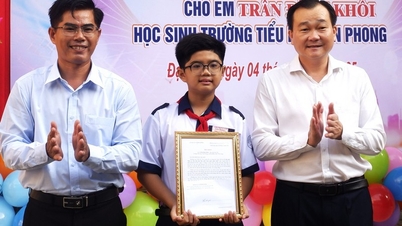

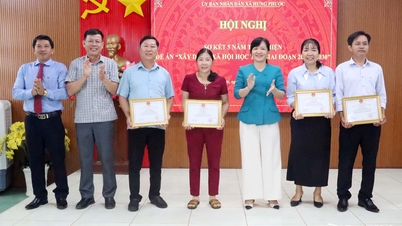

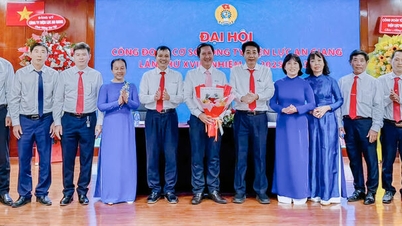





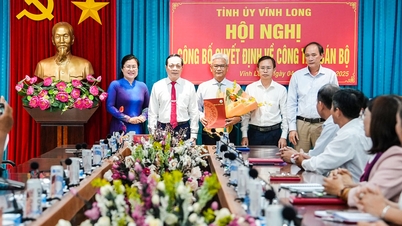





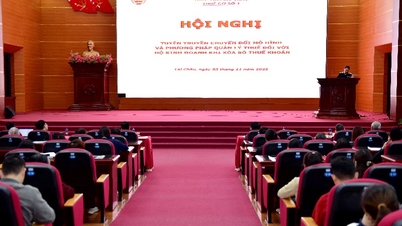


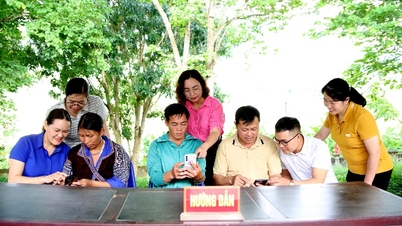
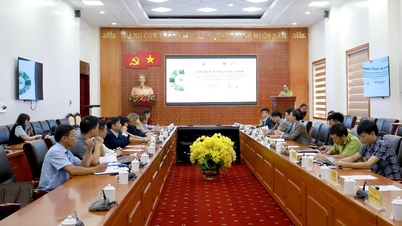























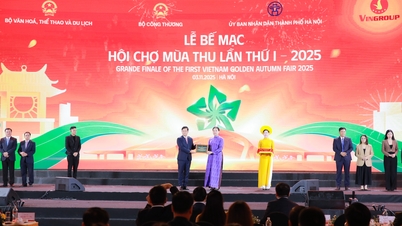

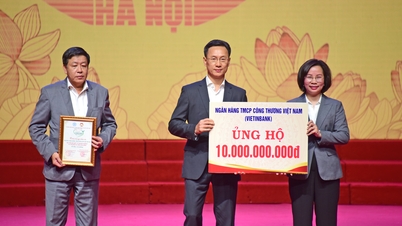













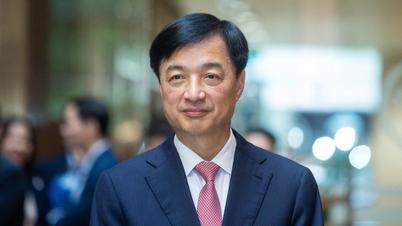









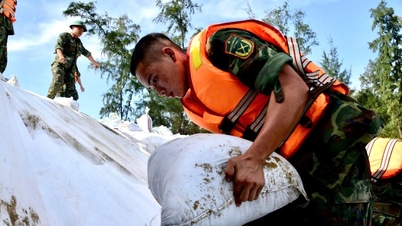

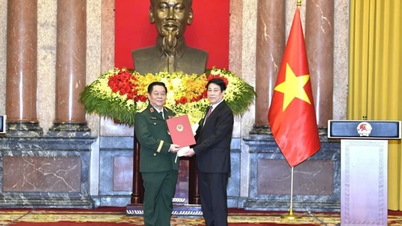

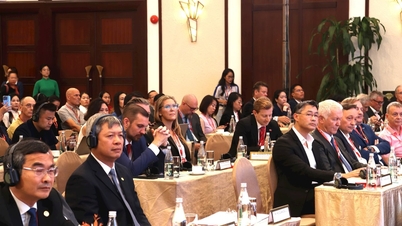


















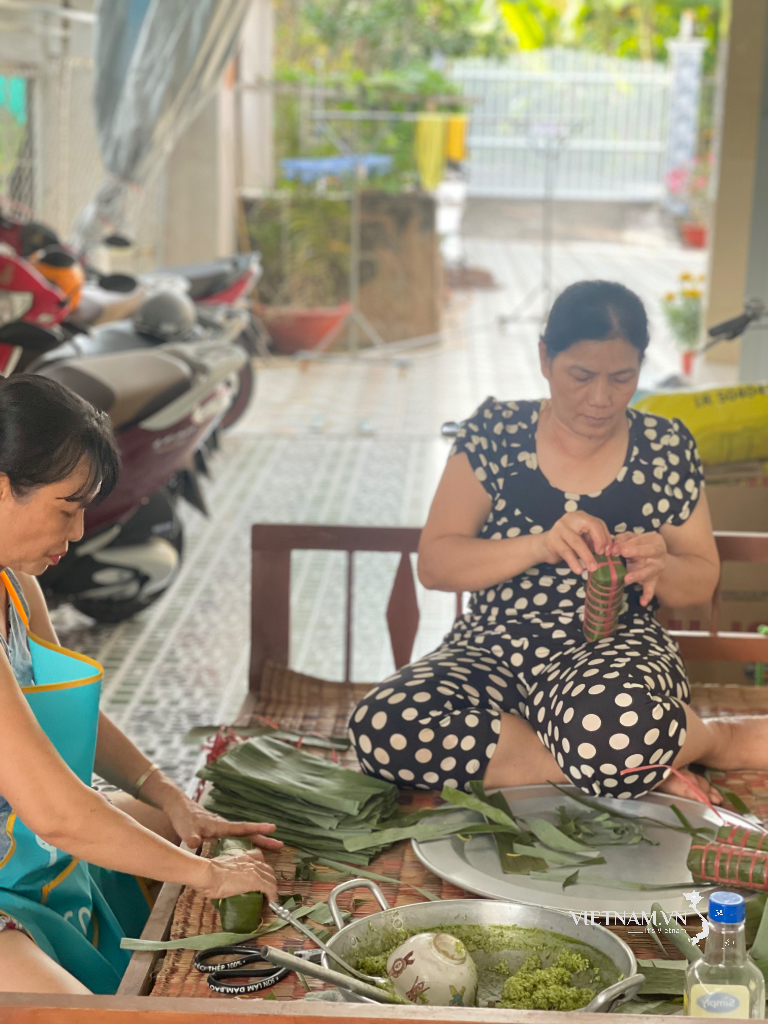
Comment (0)